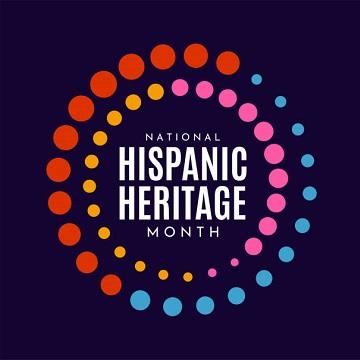National Hispanic Heritage Month is celebrated from September 15th to October 15th. In 1989, President George H.W. Bush was the first president to declare the period as National Hispanic Heritage Month. This was implemented in part due to September 15th being the anniversary of independence for the Latin American countries of Costa Rica, El Salvador, Guatemala, Honduras and Nicaragua, according to the U.S. Library of Congress. Additionally, Mexico and Chile celebrate their independence days on September 16th and September 18th. Also, Indigenous Peoples’ Day falls within this 30-day period, on October 12th.
Many Hispanic countries declared independence but have, as expected, struggled with their infrastructure and economic stability since then. One of those countries is the Dominican Republic. The Dominican Republic declared complete independence from Spain and then Haiti, officially, on February 27th, 1844. Since then, the country has succeeded in thriving in many areas, using tourism as a main source of revenue. However, even with its growing economy and prosperous tourist scene, many natives are left with few options but to leave the country.
Below is a brief recap of a typical story of a family looking for the American dream after leaving their Hispanic country.
He was born and raised in Santo Domingo (the city) and came from very humble beginnings, wherein his parents did their best to make ends meet. She was born and raised in El Rubio (the countryside) and came from a family that had done very well for themselves while growing a family, but luxuries and modern conveniences were rare. He took public transportation for hours to get to and from work. She still went down to the river to collect water. It was all worlds different than the United States. They met via his father’s travels as a truck driver. They fell in love. They weren’t supposed to, given their difference in social economic status and distance. City folk didn’t build families with country folk.
He wasn’t accepted by her family. She felt safe with him. They got married. He was 21. She was 16. They were basically children. He had a master’s degree in accounting but didn’t make much money as a bank auditor. She completed her GED in the states and had dreams of being an architect. They ultimately moved to the United States for a better life, considering they would probably lead the same lives their parents had if they stayed – a life of struggle and minimal progress or growth. They wanted more for any family they made.
He worked at bodegas (corner stores) for a few years, before being able to own one of his own. She worked at the bodega and at a bank, with a few years working in fast food when times were most difficult. He worked at the bodegas he owned for over 30 years. She worked with him, and still works at a warehouse retailer today, and has been there for over 22 years. They have 5 daughters and 9 grandchildren.
They left their customs, their authentic food, their homes, relationships and all they’d known, to take the biggest risk of leaving their families and friends. They had to learn the language, the norms, and the laws and rules of a new country they now love. They obtained their American dream. Their daughters grew up in the United States and had everything they ever needed. Their daughters include a lawyer, a nurse, a psychologist, a warehouse manager, and a master’s degree college student. They had to endure the ultimate sacrifice, but they are proud. Although they miss their home of origin, they know they made the right decision. They’re not truly Dominican when they go visit the Dominican Republic, and will likely always be discriminated against by some people here in the United States for not being truly American. Their daughters are neither fully Dominican nor American, but find peace in considering themselves Dominican American. They know they are Hispanic, and for that they are all proud. I am proud to be their eldest daughter. This is my brief story of a Hispanic family here in the United States.
Below are ten ways to celebrate Hispanic Heritage Month:
- Learn how Hispanic Heritage Month came about
- Take a Latin dance class
- Celebrate with traditional music and family
- Ask friends to teach you about their traditions
- Revisit a recipe that’s been passed down
- Educate others about the culture
- Spend time researching your ancestors’ lives
- Gather with loved ones to celebrate together
- Remember to be respectful
Ruby Delarosa is an Associate in the firm’s Mt. Laurel office and a member of the firm’s Diversity, Equity & Inclusion Committee.

